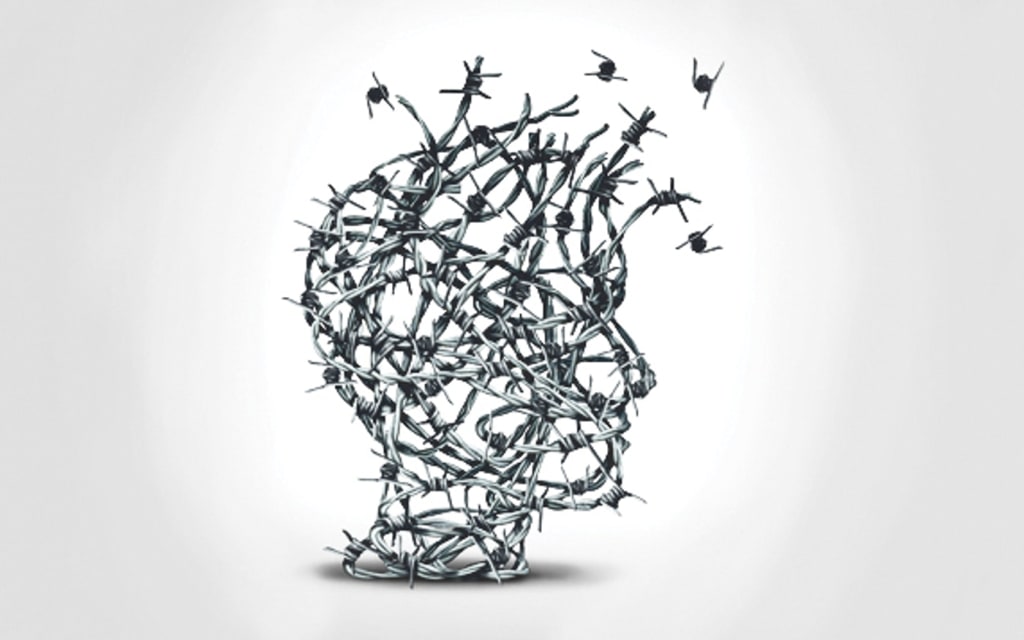Mental and Physical Abuse
Herman's Three Stage Trauma Recovery Process

Trauma is defined by the American Psychological Association as the psychological and emotional responses to terrible events. How do you work through this trauma the best way you can? It's difficult and stressful finding a way out of trauma after abuse, knowing there is no set timeframe for the success of your recovery. You can't force it and must be patient with the pace. Recovery is different for everybody, and it doesn't improve trying to isolate yourself, you must stay connected with the world around you. There are three stages of emotional and physical trauma recovery; safety and stabilization, remembrance and mourning, then reconnection and integration.
The first phase of your trauma recovery is safety and stabilization. In this phase, you will start to doubt and blame yourself, you may feel confused, lost or hopeless. Your nervous system and brain are responding exactly the way they are supposed to due to surviving repeated traumatic experiences, so feeling this way is normal. Abuse can destroy your assumption about trust and safety, shame and guilt will fuel these negative emotions. The purpose of this phase is to re-establish those feelings of safety and self-worth. Find something that will calm you down when you are having an episode of emotional crisis, try to remember what triggers your breakdowns and avoid it in the future. It might be too soon to start talking to people about your feelings, try drawing, painting, coloring, something to distract you in those hard times. Focusing on your own happiness is essential here, you have to practice forms of self-love and appreciation. Work on uncovering and exploring your source of inner strength.
The second phase is remembrance and mourning. In this phase, it's important to learn how to mourn and to recognize it. It's important to feel different emotions in this stage, but keeping them in the past. Always remember to mourn the relationship for what it could have been, not for what it was. Reviewing and discussing memories will help to lessen the emotional intensity, and gradually you will begin to see parts of your life more interesting than the trauma and start to focus on the wider environment. You will still feel anger towards your abuser or miss the good times you had together, which is totally normal, here you will work through your trauma by facing it. Remember that discussing these painful memories isn't always necessary and the progress of these stages all depend on past experiences, and personal character. Most people can find it hard to express their feelings to people so they will seek out support groups or counseling, which are great ideas too. The point is to explain your story in depth and detail to help transform the traumatic memories, so they can be integrated into your life story.
The final step to trauma recovery is reconnection and integration. Here you have recognized the impact of your trauma, how it has affected you, and now you're ready to take solid steps towards empowerment and self-determined living. The purpose of this phase is to focus on reinventing yourself, with trauma behind you, now a story of your strength and how you won a great battle. You will start to focus towards a hopeful and successful future, you will start reconnecting with people, personal and meaningful activities and achievements. Although your trauma no longer has control over your life or define who you are, it doesn't mean all of the negative thoughts and feelings will go away, they will come back time after time but your goal here is to reclaim yourself, your love, your life, not to blank everything out and forget. Always recognize your strength and perseverance that made all of this possible, give yourself the beautiful gift of recovery. As your life now becomes focused on a healthy present and healed self, you will find new ways to continue healing and growing letting the trauma slip further away. Be gentle, patient, and compassionate with yourself during this stage, and stay on the right track towards your brighter future.
Recovering from trauma is an individual process which looks different for everybody. Throughout these phases, you will have the tendency to try and push through it all and feel like it's taking to long, but don't give in to this, you've come so far and it's going to take time. Trauma recovery doesn't happen overnight for anyone, and all recovery is never the same for each person. You are no longer defined by your disappearance of thoughts and feelings, but you are able to live with it where it isn't controlling your life. You will experience a new outlook on life, your goals will become clear and you will generate a new commitment towards them. Through all of these stages, you can incorporate a new meaning to your life. Everyone is guaranteed a chance to reclaim a life filled with love, contentment, security, and liberation.






Comments
There are no comments for this story
Be the first to respond and start the conversation.